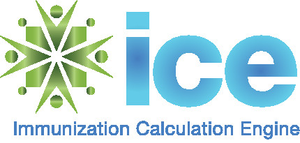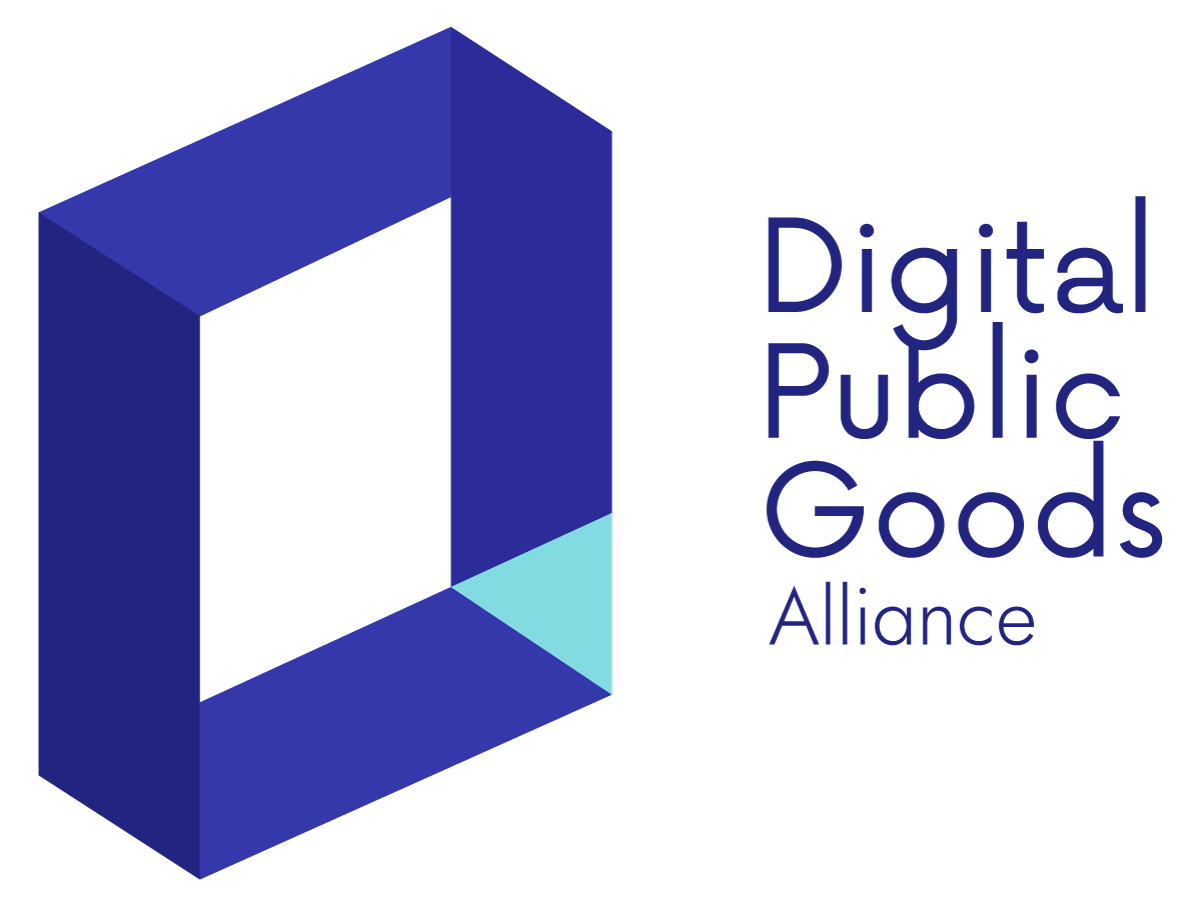Home
Subscribe to receive ICE Announcements!
What is ICE?
The Immunization Calculation Engine (ICE) is a free, open-source immunization forecasting software system. The core component of ICE is the ICE Web Service, which evaluates a patient's immunization history and generates the appropriate immunization recommendations for the patient. The ICE Web Service runs in OpenCDS which is a third-party platform that may be used to build decision support services for any clinical domain.
ICE comes initially configured with a default immunization schedule that supports all routine childhood, adolescent, and adult immunizations - based on the recommendations of the Advisory Committee on Immunization Practices (ACIP).
The ICE software system has been developed and configured by a collaborative partnership of public health experts and information technology experts from the organizations listed below and has been released under a standard open-source license:
- New York City Department of Health and Mental Hygiene, Citywide Immunization Registry (CIR)
- HLN Consulting, LLC
- Alabama Department of Public Health (ADPH)
- The OpenCDS collaboration spearheaded by Dr. Kensaku Kawamoto and colleagues at the University of Utah, Department of Biomedical Informatics.
Due to its standards-based Web Service interface, its Java-based implementation, and its complete lack of dependence on any commercial software, ICE can be deployed in diverse technical environments and easily integrates with third party clinical systems such as Immunization Information Systems (IIS), Electronic Health Record Systems (EHR-S), and Health Information Exchanges (HIEs).
Clinical systems utilize the ICE Web Service by passing a Virtual Medical Record (vMR) to its Web Service which adheres to the Decision Support Service (DSS) standard. In response, ICE utilizes its immunization rules and the data in the vMR, such as the patient’s date of birth, gender, immunization history, and disease indicators, to evaluate and return the validity of each immunization in the patient’s history along with one or more evaluation reasons. It also returns a recommendation for each vaccine group along with one or more recommendation reasons. ICE’s Web Service architecture scales to support simultaneous real-time processing of many patients submitted by one or more systems. It can also service requests for multiple immunization schedules. For example, a single ICE deployment could enforce one immunization schedule utilized by an IIS, another immunization schedule used by multiple EHR-S, and a third immunization schedule utilized by a school health system.
Current News
July 17, 2024 - Upcoming Transition to ICE v2
- In addition to ongoing work to ensure ICE alignment with ACIP recommendations, we've also been working on core updates to the ICE service. We will soon release ICE v2.43.1, a production-ready transition release that updates the ICE service to Java 17, Spring v6, OpenCDS v6, and Tomcat 10. This release will be functionally equivalent to release v1.43.1.
- Since ICE runs in a variety of environments, we suggest you plan to complete additional testing to ensure there are no issues with your installation/with running v2.43.1 in your environment. Release v1.43.1 will continue to be available in case you encounter challenges.
- For subsequent releases over the short term, we will continue to have two versions of ICE available: v1, which runs on Java 8, and a functionally equivalent v2 with the core updates. We welcome your testing feedback to ensure ICE users can successfully transition to v2.
- If you have any questions, comments, or suggestions, please reach out to us at ice@hln.com.
June 21, 2024 - New Release of ICE - Version 1.43.1
- A new release of ICE is available - Download the latest ICE release now.
- Version 1.43.1 includes the following additions and changes. Please see the Release Notes for details.
- Meningococcal B: Added support for CVX 316, Meningococcal MenABCWY (Penbraya). Addressed an issue in the series selection rules that resulted in (under certain circumstances) the incorrect series being selected.
- Meningococcal ACWY: Added support for CVX 316, Meningococcal MenABCWY (Penbraya).
- Influenza: Added support for CVX 320, Influenza, MDCK, trivalent, preservative.
- DTP: Added recommendation reason codes ADMINISTER_TDAP_OR_TD and SUPPLEMENTAL_TEXT, with descriptive text, "Administer either Tdap or Td" to the recurring booster dose recommendation.
- MMR: Addressed an issue in the proof of immunity logic.
- Varicella: Addressed an issue in the proof of immunity and disease documented logic.
- Hep A / Hep B: Addressed an issue in the proof of immunity logic.
- A new property, disable_covid19_sep2023_dose_number_reset, was added to the ice.properties file. If enabled, ICE will not reset the dose number to 1 when recommending the Sept 2023 COVID-19 >= 5y series. This option is disabled by default, aligning with the behavior in the last version.
- The ICE Implementation Guide has been updated to include CVX 316 and CVX 320.
- A Google Sheet that lists all the coded values in the Implementation Guide is also available.
- Upcoming Releases:
- Forthcoming ICE updates will include the introduction of a new RSV vaccine group to support RSV evaluation and recommendations for infants and older adults, and support for an additional dose recommendation of COVID-19 for adults ages 65 years and older.
- An ICE software upgrade to Java 17, OpenCDS v6, and Tomcat 10. The Java 17/Tomcat10 will ultimately replace the current Java 8/Tomcat 9 version and a test version will be available in July. So that users have time to test the new Java 17/Tomcat 10 version in their environments, the ICE team will provide both Java 17/Tomcat 10 and Java 8/Tomcat 9 versions for a couple of releases before fully deprecating the Java 8/Tomcat 9 version entirely.
- Not sure which version of ICE you're currently using? View the README.HISTORY file included with each zipfile distribution or pull the version dynamically at the following endpoint: http(s)://<host>:<port>/path/to/opencds-decision-support-service/version.
- If you have any questions, comments, or suggestions, please e-mail us at ice@hln.com.
The Importance of Upgrading After Each ICE Release
- With each new release, we strongly recommend that all users and service providers update their running instances of ICE as soon as possible to the latest version. Each new release contains important forecaster business logic updates and fixes.
ICE Code Systems and Codes Now Available in Google Sheets
- The ICE code systems and codes are now accessible in Google Sheets as an added convenience. These are the codes as those in the Implementation Guide. The codes will continue be updated in both the places.
- The Google Sheet is available here.
Configuration Notes
- As of release 1.24.1, the ICE service is configured with the output_supplemental_text option in the properties file set to enabled by default.
- As of release 1.16.1, the ICE service is configured by default to return the earliest and overdue dates in addition to the recommendation date. In prior releases, the default configuration was to return only the recommendation date for the forecast.
- If your application has not been configured to display the earliest and/or overdue dates, we recommend turning this feature off by changing the output_earliest_and_overdue_dates value in the ice.properties file to "N". Failure to do so may result in incorrect interpretation of the recommendation date.
- If you are interested in returning the earliest date or overdue date, please refer to the latest ICE Implementation Guide for details indicating precisely where each of the forecast dates – earliest, recommended, and overdue – are specified in the ICE output, and under what circumstances.
For more information, see the Full List of Archived News...
ICE Recognized as a Digital Public Good
In 2021, the Immunization Calculation Engine (ICE) project was chosen by the Digital Public Goods Alliance as an innovative openly licensed technology and listed in their Digital Public Goods registry. Digital Public Goods have clear documentation, open licenses, and support Sustainable Development Goals, in alignment with the requirements of the Digital Public Goods Standard. Noam Arzt, President of HLN Consulting stated,
"For us, being recognized as a digital public good means expanding the exposure to the ICE open source software and minimizing the barriers to installing and using ICE anywhere in the world." Arzt added that "While ICE rules are currently based on US ACIP recommendations, it can be adapted to include rules based on WHO clinical guidelines or country-specific requirements."
Flexibility is one of the key reasons why HLN chose open source as their development model for ICE. Read the HLN blog and the press release to learn more.
ICE Wins a 2017 Upshot Award from the National Vaccine Program Office (NVPO)
On June 6, 2017, HLN was awarded the 2017 Upshot Award for Excellence in Vaccine Supply, Access, and Use by the National Vaccine Program Office (NVPO) for its ICE Open Source Immunization Forecaster. In the letter of award, Dr. Jewel Mullen, Principal Deputy Assistant Secretary for Health commented that,
"HLN Consulting’s efforts on the Immunization Calculation Engine (ICE) are impressive. This powerful tool-including its open-source nature and seamless integration into clinical workflows-holds great promise for improving clinical decision-support and ultimately vaccination rates. Thank you for daring to innovate, collaborate, and lead in an area that is not only complex, but constantly evolving."
Mike Suralik, one of HLN’s project managers, was on hand to receive the award at the meeting of the National Vaccine Advisory Committee in Washington, DC. HLN is pleased to accept this award on behalf of the ICE project. Read the HLN press release to learn more.
Try Using ICE from Your Web browser
A simple application, called "ICE Client", has been created and made freely available so that anyone can submit sample patient data to the ICE Web Service and see the evaluations and recommendations that the ICE Web Service returns. Try ICE now from your web browser.



